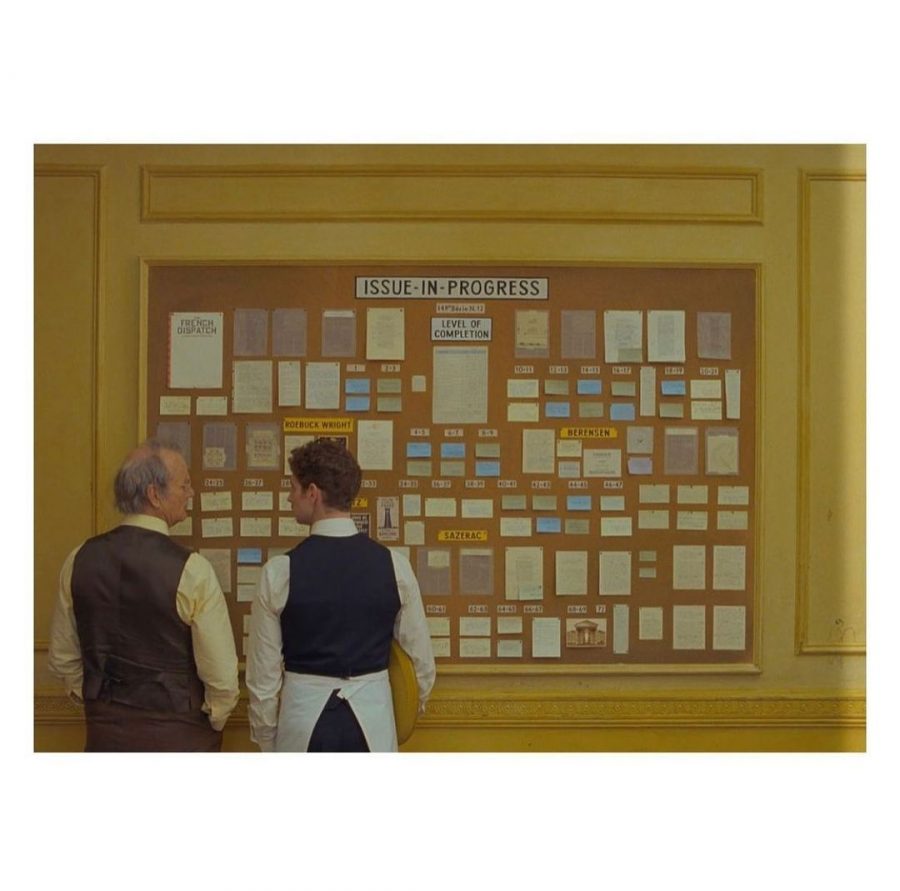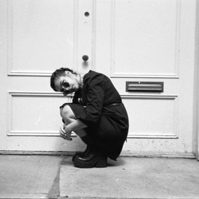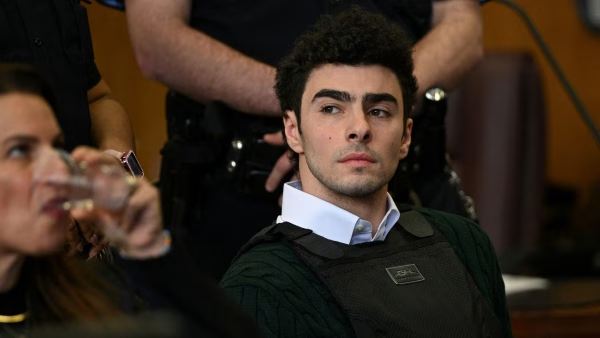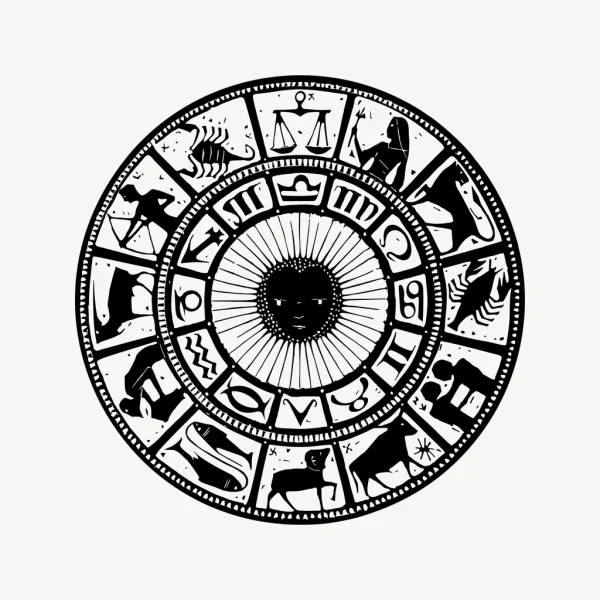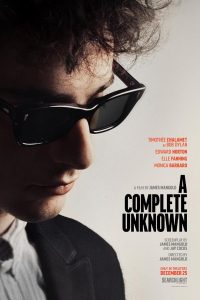‘The French Dispatch’ is just another Wes Anderson film
November 11, 2021
Wes Anderson—a popular filmmaker, commonly known for his vibrantly colored, cryptic stop motion and live-action works and a film bro’s 21st-century messiah. This past October, he released his latest film “The French Dispatch,” alongside other recent releases such as “Last Night in Soho” and “Dune.” The tsunami of these highly anticipated films knocked many film lovers off their seats, scrambling towards theaters.
The film did well at the indie-film box office, having grossed the highest opening theater average for the genre during the ongoing pandemic era, at $25,000 in ticket sales from the 52 select theatres chosen to preview the film before its official release.
Already, it has a 75 percent rating on popular review site Rotten Tomatoes. This isn’t surprising, especially with impressive actors such as Timotheé Chalamet, Bill Murray, Owen Wilson and Saoirse Ronan littering the cast list.
Anderson explains the film was inspired by his fascination with The New Yorker operation, taking the concept and using it to mold the paper his story revolved around—”The French Dispatch.” Throughout the film, you’re guided through three articles written for the dispatch as its authors describe the story unfolding in front of you.
This newest release absolutely followed form with the rest of Anderson’s film. The cinematography and eclectic pastel color palette felt like an early morning in spring. The stories themselves, although impersonal, were whimsical and stimulating. Rather than having you hanging off the edge of your seat, wondering what would happen next, you were more likely to lounge backward and consider what had just happened.
Alexandre Desplat didn’t disappoint: the soundtrack and score were spirited and extremely coordinated with the scene to which it was stitched. From the charming jolliness of “Obituary,” which followed Herbsaint Sazerac (Owen Wilson) as he cycled through Ennui-sur-Blasé, giving viewers a tour of the fictional town the film takes place, to the uncomfortable skittering of “Cadazio Uncles and Nephew Gallery,” that hummed in the background of our first story as art critics viewed the work of the homicidal inmate who painted them, none of the music fell short in supporting the quaint French charm the rest of the film provided.
The acting was applaudable throughout, given the aforementioned ensemble cast. The same dry quirkiness “The French Dispatch” aimed to provide was just as present during the awkward post-sex bed scene shared between the young French revolutionary, Timothée Chalamet, and a self-inserting journalist, Frances McDormand. During the introduction of the incarcerated artist, Benicio Del Toro, and art scouter, Adrien Brody, with the watchful eye of Simone, the prison guard and artist’s muse played by Léa Seydoux peering over them. Regardless of this similar acting style, each character felt unique.
Despite all the technical aspects to rave about, there are some critiques to be made as well. Nola Powell, a sophomore Film and Screen Studies major, felt “overall the film wasn’t bad. I enjoyed most of the elements that made it a Wes Anderson film, but my main critique comes from it feeling a bit lackluster.
“The audience is informed of the ending before the story has begun, so I felt no connection to Bill Murray’s character. The stories that made up the film were charming but fell flat most of the time.nThe film felt like a montage of Wes Anderson tropes, and I’m certain that there is another film in his library viewers will favor more,” Powell said.
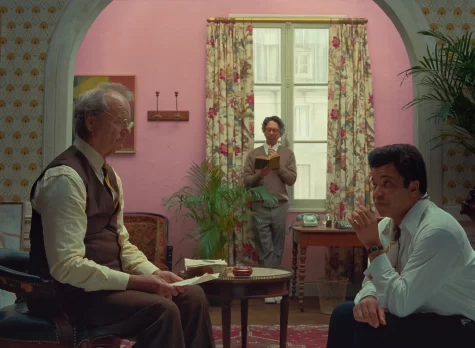
“The French Dispatch” hits every sweet spot for Wes Anderson fans: the cinematography, use of color, whimsical nature, quirky plot, cryptic nature and impressive cast list were all present and accounted for, but Powell perfectly sums up exactly what “The French Dispatch” was missing: spark. Plotwise, “The French Dispatch” is like a bug bite—no matter how much you scratch at it, that itch is just never fully satisfied.
To Wes Anderson fans, you will find “The French Dispatch” amazingly satisfactory. Light those scented candles, pour that glass of wine, and get the bubbles going as you sink into that warm bath a good Wes Anderson film runs for you. You’ll find that familiar, comfortable feeling you’re looking for.
To everyone else, don’t rush to see Anderson’s latest release before taking a peek at “Last Night in Soho” or “Dune” this fall. Although appealing in many ways, “The French Dispatch” isn’t anything special: it’s just another Wes Anderson film.

